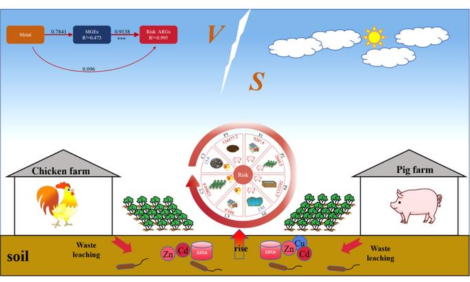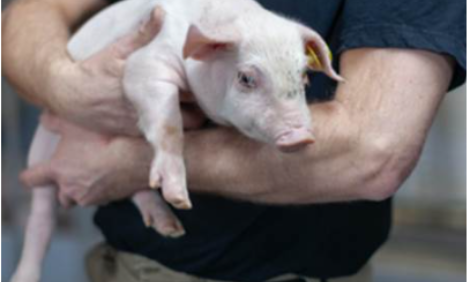



Eliminating possible causes of tail biting
By Lucas Habib - Tailbiting and the lack of effective solutions to prevent it has plagued pork producers for years, but University of Guelph researchers are investigating possible causes for the behaviour and trying to find the best approach to stop it.Information provided courtsey Ontario Pork
 |
Stress is known to elicit a salt appetite in rats, mice, sheep and rabbits, so the researchers wanted to see if this applies to pigs as well. If it does, they figured animals might respond to stress by trying to draw blood for its high salt content.
Pigs were given adrenocortitcotropic hormone (ACTH), which is secreted under periods of high stress. However, this didn't increase the consumption of a saltwater solution provided to the animals, meaning that salt itself may not be the reason behind tailbiting.
Next, the researchers tested the salt delivery method to see if pigs preferred getting salt from chewing rather than drinking a solution. Model pig tails were created out of pieces of rope soaked in blood, salt water, and pure water. Again, pigs were treated with ACTH, and presented with the tail models. The blood-soaked tails were the most popular, but there was no difference in the numbers that chose the salt-water tails or pure-water tails. This suggests that a taste for salt might not be the critical factor in pigs? attraction to blood. However, an increase in ACTH is only one of the body's main physiological responses to stress, so it's possible that other factors could cause salt appetite.
Next, Widowski and Jankevicius plan to look at the effects of other stressors which could elicit a taste for salt or chewing effects on the tail models. To that end, they'll be testing the effects of blowing draughts of cold air onto the pigs to cause thermal discomfort - and simulate one aspect of poor ventilation - to see if that stimulates chewing that could lead to tailbiting.
This research is sponsored by Ontario Pork, the Ontario Ministry of Agriculture, Food and Rural Affairs, and the Natural Sciences and Engineering Research Council. For a copy of the final report, contact Jean Howden at 1-877-ONT-PORK or [email protected]. For more information about the project, contact Dr. Tina Widowski at University of Guelph at 519-824-4120.
Source: Ontario Pork, February 2002








